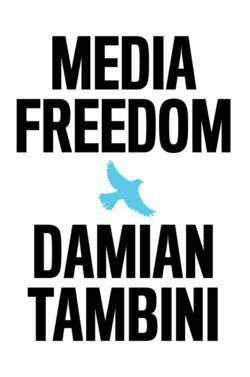Читать книгу Media Freedom - Damian Tambini - Страница 12
Freedom From or Freedom To?
ОглавлениеOne of the key debates in freedom of speech theory is whether the freedom should be considered as a negative right, as freedom from state intervention, or whether it should be a positive right, a freedom to achieve certain communicative ends, which may entail some active intervention by the state to promote – even by intervening in the speech field – the conditions necessary to the enjoyment of this right.61 Such considerations also apply to media freedom. Many practical consequences depend on which approach is adopted: a negative rights approach prohibits intervention by state agencies into the speech field and would hold as incompatible with freedom of speech and media freedom any regulation of broadcasters which obliges them to express balanced or diverse views, or offer access to certain interests or perspectives.
As we will explore in subsequent chapters, divergence between European and international approaches – based on a more positive approach in Europe and more negative approaches in the US – can be traced to the founding texts. The First Amendment to the US Constitution obliges Congress to make no law to abridge freedom of speech or of the press (which has been held to include broadcasting). The freedom of expression guarantee in Article 10 of the ECHR, by contrast, expressly permits the licensing of broadcasting, and the ECtHR has held numerous times that there are positive obligations on the state to maintain the diversity and plurality necessary for democratic debate, including the maintenance of public broadcasting.62 It would be difficult to exaggerate the importance of this distinction.
State interference in the speech field can be presented as a restriction of media freedom, but the case can also be made that some form of subsidy or support of media is necessary for real enjoyment of communication and expression rights. Even in the US, a growing number of people are calling for new privileges and subsidies for journalism.63 A negative rights approach to social media would tend to focus attention on the need to find ways of limiting state incursions into the speech field, and ensuring that accountability and balancing of rights take place in courts in ways that prevent state control of media and public opinion. A positive rights approach could inform the opposite: namely that a regulatory framework might be applied to the media to ensure that they actively promote rights including the expression rights of their users. Because media both have expressive rights and are a necessary condition for the enjoyment of expressive rights of others, and because it is difficult to manage this dual role, it may be necessary to constrain them in the name of freedom of speech.
The question of what positive measures are needed to protect the media arises in particular in connection with journalist safety. Case law of the ECtHR has established that states have a positive obligation under Article 10 to ensure journalists’ safety and freedom from intimidation.64 Much of the policy debate about press regulation is a debate about accountability: how to institutionalize an accountability framework for the press without undermining autonomy. But the construction of structures for protection of journalists could have indirect effects, even if the journalist was not originally threatened by the state. When journalist Roberto Saviano, the author of Gomorrah, an exposé of organized crime in southern Italy, was threatened with Mafia reprisals, the home office minister stepped in to provide twenty-four-hour police protection. But when Saviano turned his fire on the corruption of that very minister, the Northern League’s populist rabble-rouser Matteo Salvini, veiled threats were made by the politician’s supporters that the minister could simply remove the armed guard. Saviano’s subsequent outspokenness required bravery. Experiments in Mexico and elsewhere have attempted to provide protection to journalists without compromising independence or chilling speech.
In a European context,65 the doctrine whereby states have a positive obligation to intervene to promote enjoyment of a right, rather than merely a negative obligation not to infringe a right, is increasingly applied to the media. According to the UN Principles on Business and Human Rights,66 such an approach should also be applied globally. The first cases are starting to be brought against social media platforms as censors of other people’s rights.67 The ongoing debate about positive versus negative approaches needs to be addressed directly, and the cul-de-sac of simplistic negative rights ‘content neutrality’ exposed.
